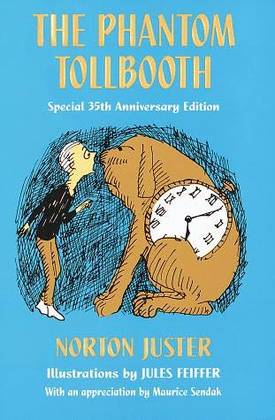Meet Science: What is "peer review"?: "
When the science you learned in school and the science you read in the newspaper don't quite match up, the Meet Science series is here to help, providing quick run-downs of oft-referenced concepts, controversies, and tools that aren't always well-explained by the media.

'According to a peer-reviewed journal article published this week ...'
How often have you read that phrase? How often have I written that phrase? If we tried
to count, there would probably be some powers of 10 involved. It's clear from the context that 'peer-reviewed journal articles' are the hard currency of science. But the context is less obliging on the whys
and wherefores.
Who are these 'peers' that do the reviewing? What, precisely, do they review? Does a peer-reviewed paper always deserve respect, and how much trust should we place in the process of peer
review, itself? If you don't have a degree in the sciences, and you aren't particularly well-versed in self-taught
science Inside Baseball, there's really no reason why you should know the answers to all
those questions. You can't be an expert in everything, and this isn't something that's explicitly taught
in most high schools or basic level college science courses. And yet, I and the rest of the science media
continue to reference 'peer review' like all our readers know exactly what we're talking about.
I think it's high time to rectify that mistake. Ladies and gentlemen, meet peer review:
What does the phrase 'peer-reviewed journal article' really mean?
This part you've probably already figured out. Journal articles are like book reports, usually written
to document the methodology and results of a single scientific experiment, or to provide evidence
supporting a single theory. Another common type of paper that I talk about a lot are "meta analyses"
or "reviews"—big-picture reports that compare the results of lots of individual experiments,
usually done by compiling all the previously published papers about a very specific topic. No single
journal article is meant to be the definitive last word on anything. Instead, we're supposed to improve
our understanding of the world by looking at what the balance of evidence, from many experiments
and many articles, tell us. That's why I think reviews are often more useful, for laypeople. A single
experiment may be interesting, but it doesn't always tell you as much about how the world works as a
review can.
Both individual reports and reviews are published in scientific journals. You can think of these
as older, fancier, more heavily edited versions of 'zines. The same scientists who read the journals
write the content that goes in the journals. There are hundreds of journals. Some publish lots of
different types of papers on a very broad range of topics—"Science" and "Nature", for
instance—while others are much, much more specific. "Acute Pain", say. Or "Sleep Medicine
Reviews". Usually, you have to pay a journal a fee per page to be published. And you—or the
institution you work for—has to buy a subscription to the journal, or pay steep prices to read
individual papers.
Peer review really just means that other scientists have been involved in helping the editors of these
journals decide which papers to publish, and what changes need to be made to those papers before
publication.
How does peer review work?
It may surprise you to learn that this is not a standardized thing. Peer review evolved out of the informal practice of sending research to friends and colleagues to be critiqued, and it's never really been codified as a single process. It's still done on a voluntary basis, in scientists' free time. Such as that is. And most journals do not pay scientists for the work of peer review. For the most part, scientists are not formally trained in how to do peer review, nor given continuing education in how to do it better. And they usually don't get direct feedback from the journals or other scientists about the quality of their peer reviewing.
Instead, young scientists learn from their advisors—often when that advisor delegates, to the grad students, papers he or she had volunteered to review. Your peer-review education really depends on whether your advisor is good at it, and how much time they choose to spend training you. Meanwhile, feedback is usually indirect. Journals do show all the reviews to all of a paper's reviewers. So you can see how other scientists reviewed the same paper you reviewed. That gives you a chance to see what flaws you missed, and compare your work with others'. If you're a really incompetent peer reviewer, journals might just stop asking you to review, altogether.
Different journals have different guidelines they ask peer reviewers to follow. But there are some commonalities. First, most journals weed out a lot of the papers submitted to them before those papers are even put up for peer review. This is because different journals focus on publishing different things. No matter how cool your findings are, if they aren't on-topic, then 'Acute Pain' won't publish them. Meanwhile, a journal like 'Science' might prefer to publish papers that are likely to be very original, important to a field, or particularly interesting to the general public. In that case, if your results are accurate, but kind of dull, you probably will get shut out.
Second, peer reviews are normally done anonymously. The editors of the journal will often give the paper's author an opportunity to recommend, or caution against, a specific reviewer. But, otherwise, they pick who does the reviewing.
Reviewers are not the people who decide which papers will be published and which will not. Instead, reviewers look for flaws—like big errors in reasoning or methodology, and signs of plagiarism. Depending on the journal, they might also be asked to rate how novel the paper's findings are, or how important the paper is likely to be in its field. Finally, they make a recommendation on whether or not they think the specific paper is right for the specific journal.
After that, the paper goes back to the journal's editors, who make the final call.
If a paper is peer reviewed does that mean it's correct?
In a word: Nope.
Papers that have been peer reviewed turn out to be wrong all the time. That's the norm. Why? Frankly, peer reviewers are human. And they're humans trying to do very in-depth, time-consuming work in a limited number of hours, for no pay. They make mistakes. They rush through, while worrying about other things they're trying to get done. They once had to share a lab with the guy whose paper they're reviewing and they didn't like him. They get frustrated when a paper they're reviewing contradicts research they're working on. By sending every paper to several peer-reviewers, journals try to cancel out some of the inevitable slip-ups and biases, but it's an imperfect system. Especially when, as I said, there's not really any way to know whether or not you're a good peer reviewer, and no system for improving if you aren't. There's some evidence that, at least in the medical field, the quality and usefulness of reviews actually goes down as the reviewers get older. Nobody knows exactly why that is, but it could have to do with the lack of training and follow-up, the tendency to get more set in our ways as we age, and/or reviewers simply feeling burnt out and too busy.
It's also worth noting that peer review is really not set up to catch deliberate fraud. If you fake your results, and do it convincingly, there's not really any good reason why a peer reviewer would catch you. Instead, that's usually something that happens after a paper has been published—usually when other scientists try to replicate the fraudster's spectacular results, or find that his research contradicts their own in a way that makes no sense.
If a paper isn't peer-reviewed, does that mean it's incorrect?
Technically, no. But, here's the thing. Flawed as it is, peer review is useful. It's a first line of defense. It forces scientists to have some evidence to back up their claims, and it is likely to catch the most egregious biases and flaws. It even means that frauds can't be really obvious frauds.
Being peer reviewed doesn't mean your results are accurate. Not being peer reviewed doesn't mean you're a crank. But the fact that peer review exists does weed out a lot of cranks, simply by saying, 'There is a standard.' Journals that don't have peer review do tend to be ones with an obvious agenda. White papers, which are not peer reviewed, do tend to contain more bias and self-promotion than peer-reviewed journal articles.
You should think critically and skeptically about any paper—peer reviewed or otherwise—but the ones that haven't been submitted to peer review do tend to have more wrong with them.
What problems do scientists have with peer review, and how are they trying to change it?
Scientists do complain about peer review. But let me set one thing straight: The biggest complaints scientists have about peer review are not that it stifles unpopular ideas. You've heard this truthy factoid from countless climate-change deniers, and purveyors of quack medicine. And peer review is a convenient scapegoat for their conspiracy theories. There's just enough truth to make the claims sound plausible.
Peer review is flawed. Peer review can be biased. In fact, really new, unpopular ideas might well have a hard time getting published in the biggest journals right at first. You saw an example of that in my interview with sociologist Harry Collins. But those sort of findings will often published by smaller, more obscure journals. And, if a scientist keeps finding more evidence to support her claims, and keeps submitting her work to peer review, more often than not she's going to eventually convince people that she's right. Plenty of scientists, including Harry Collins, have seen their once-shunned ideas published widely.
So what do scientists complain about? This shouldn't be too much of a surprise. It's the lack of training, the lack of feedback, the time constraints, and the fact that, the more specific your research gets, the fewer people there are with the expertise to accurately and thoroughly review your work.
Scientists are frustrated that most journals don't like to publish research that is solid, but not ground-breaking. They're frustrated that most journals don't like to publish studies where the scientist's hypothesis turned out to be wrong.
Some scientists would prefer that peer review not be anonymous—though plenty of others like that feature. Journals like the British Medical Journal have started requiring reviewers to sign their comments, and have produced evidence that this practice doesn't diminish the quality of the reviews.
There are also scientists who want to see more crowd-sourced, post-publication review of research papers. Because peer review is flawed, they say, it would be helpful to have centralized places where scientists can go to find critiques of papers, written by scientists other than the official peer-reviewers. Maybe the crowd can catch things the reviewers miss. We certainly saw that happen earlier this year, when microbiologist Rosie Redfield took a high-profile peer-reviewed paper about arsenic-based life to task on her blog. The website Faculty of 1000 is attempting to do something like this. You can go to that site, look up a previously published peer-reviewed paper, and see what other scientists are saying about it. And the Astrophysics Archive has been doing this same basic thing for years.
So, what does all this mean for me?
Basically, you shouldn't canonize everything a peer-reviewed journal article says just because it is a peer-reviewed journal article. But, at the same time, being peer reviewed is a sign that the paper's author has done some level of due diligence in their work. Peer review is flawed, but it has value. There are improvements that could be made. But, like the old joke about democracy, peer review is the worst possible system except for every other system we've ever come up with.
If you're interested in reading more about peer review, and how scientists are trying to change and improve it, I'd recommend checking out Nature's Peer to Peer blog. They recently stopped updating it, but there's lots of good information archived there that will help you dig deeper.
Journals have also commissioned studies of how peer review works, and how it could be better. The British Medical Journal is one publication that makes its research on open access, peer review, research ethics, and other issues, available online. Much of it can be read for free.
_____________________________________________________________
The following people were instrumental in putting this explainer together: Ivan Oransky, science journalist and editor of the Retraction Watch blog; John Moore, Professor of Microbiology and Immunology at Weill Cornell Medical College; and Sara Schroter, senior researcher at the British Medical Journal.
Image: Some rights reserved by Nic's events





"





